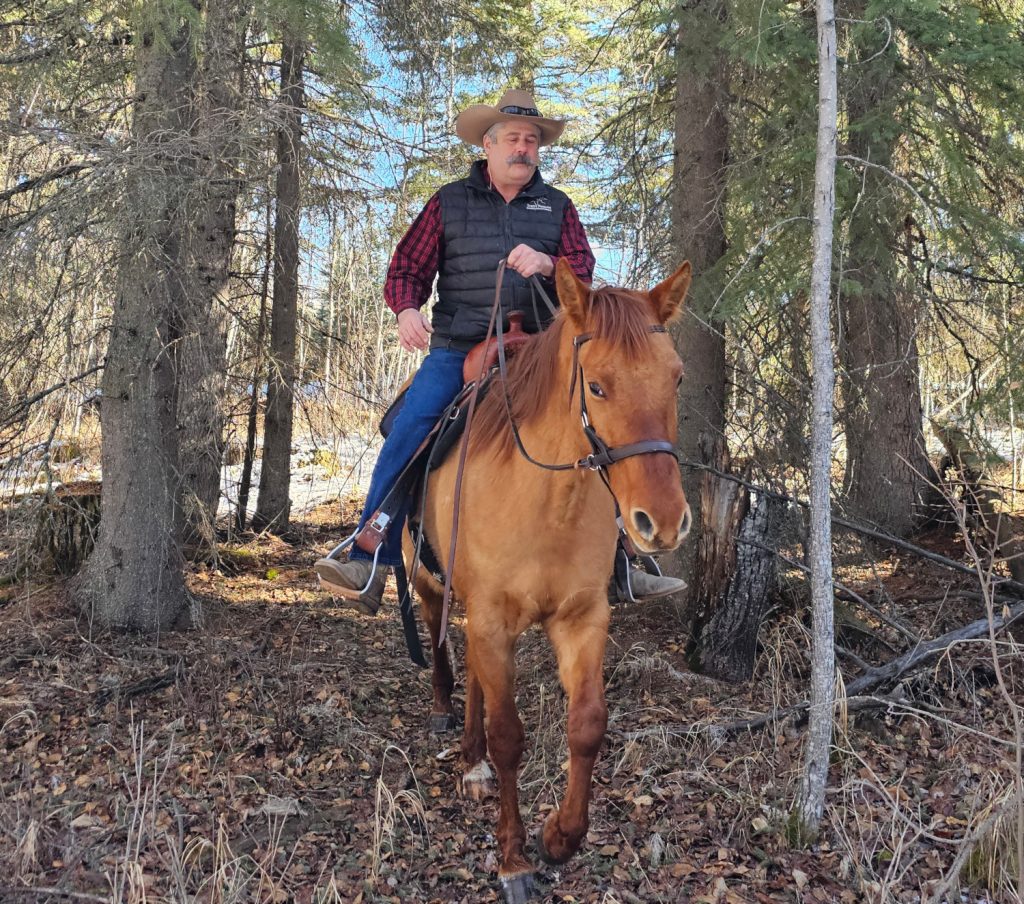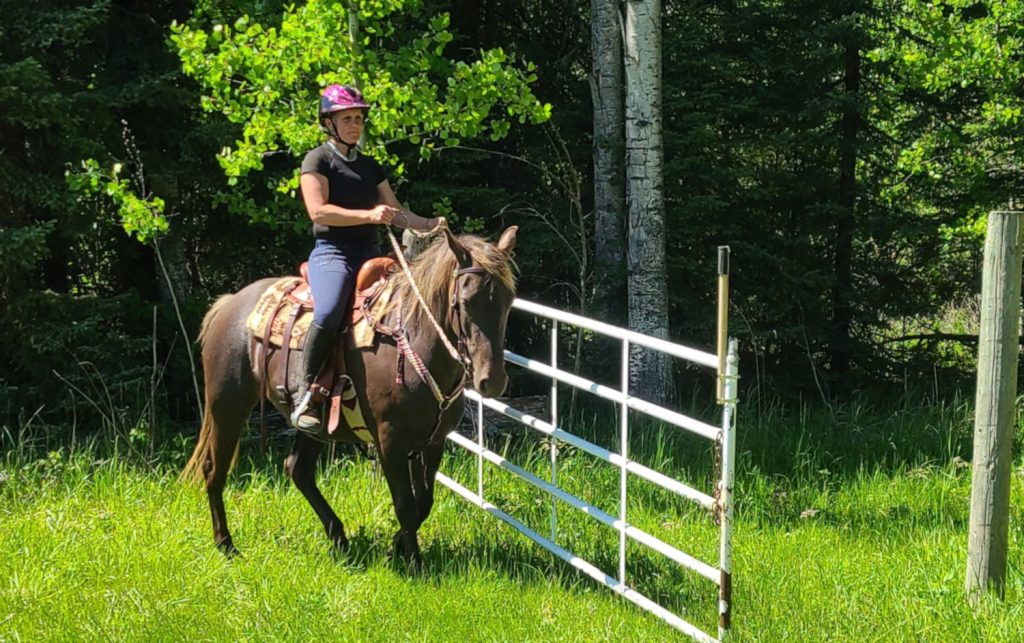What is your opinion on versatility as it relates to horses and riding?
Here’s my thought: if you’d like to eliminate spooking, bolting, freezing, bucking, frustration, fighting, fidgeting, etc. with a horse – one focus is versatility. Here’s why.
As a full-time clinician, I work with around 200 horses a year. It’s truly a passion, and I love every one of those horses. Working with so many different horses and riders allows me a unique perspective.
As a case in point, let’s consider horses trained solely for very specific tasks. A common circumstance is that these horses, often exceptional in their niche, often struggle outside of it. Horses without with varied experiences – versatility, that is – can face disastrous riding situations when they move to new homes and careers.

This isn’t always the case, though. For example, I had a teenaged mare in a workshop once that had never been outside of a building in her life until she came to our property. Bred and born in the barn, connected to the arena. But when exposed to life outside, she just loved every second of it and excelled as a trail horse.
The opposite is the more typical scenario: a horse is removed from the programmatic life they’ve been living, exposed to something completely foreign with no mechanisms to cope.
It might make you wonder—how could this happen? Especially with horses that command high prices, show outstandingly well, and have impressive win records. The fact is that they are missing two very important things:
- A practical connection with a human being. This relationship is a key factor in the horse’s ability to understand their surroundings and what they are doing or being asked to do.
- An ability to manage pressures in a positive way. This is a fundamental often overlooked – or even unknown – in training programs. Given that this ability is entirely predicated on a leadership relationship with a person, it’s easy to see how a problem can arise.
“They are missing a practical connection with a human being.”
Consider something for a moment:
Training is required – for any living creature, including us – when what we’re learning is not instinctive.
There are horses that are trained to execute maneuvers at the push of a button – regardless of who is riding them. This can take extensive training, and may seem impressive. However this can lead to disaster when the horse can only respond to buttons.
Issues arise when the horse is ridden outside their familiar venue, expect button pushes when there are none, are asked to do something not in their playbook – like a trail ride – encounter something frightening, feel anxious, or don’t understand a situation. Without knowing they can turn to the rider for support, strength, leadership, and clarity, the horse falls back on instinct. And that can mean spooking, bucking, bolting, freezing, frustration…the list goes on.
The upside – and the reality – is that following is entirely natural for a horse. They are exceptionally capable of great precision in following other horses athletically and mentally. And they can follow us exactly the same way – but we need to learn to lead in that way first.

So who is this versatile horse?
Let’s just key in on the word for a moment. We can think about how we would describe a horse and a scenario. Here are a couple examples:
Not Versatile: we use phrases like, “we can’t do that” or “my horse would spook at that” or “my horse bucks when…” or “my horse is great in the arena but…” and on and on.
Versatile: we say things like, “sure, we can give that a try!” with a degree of confidence that we can succeed.
Versatility doesn’t mean that you have done everything. It doesn’t mean that there isn’t anything your horse can’t do. It simply means that you have a connected relationship with your horse in which all things are possible – and you believe that.
So this wonderful versatile horse? It’s your horse.
Every single horse out there posesses the ability to follow a rider with positivity, courage and precision. I know this. It’s what our training style is founded on. I’ve worked with hundreds and hundreds of horses and every single one possesses greatness. Some of it simply needs a helping hand to emerge.
I’ve worked with amazing horses who’s owners told me that their trainer said they were only good for meat. It’s unfortunate that I hear that regularly. What it clearly says is that the trainer is not competent and the horse is getting the blame. But for the owner to hear that can be devastating. Just know it’s not at all true. All horses are awesome.
Like I said, versatility begins with a relationship. In that relationship two things must exist:
- You believe anything is possible with your horse and focus on a positive way to get there. As soon as we think, “I can’t” or “My horse can’t/won’t/doesn’t” then we’ve closed the door on advancement and possibility.
- Your horse has the faith in you to try anything you ask. Not because they have to. Not because they know they’ll be punished if they don’t. But because they have a desire to try for you because it meets their needs, gives them confidence and instills a sense of pride that they can’t get anywhere else.
Sound like monuments to climb? They’re really not. Ever journey starts with planning and taking the first steps. It’s easy when we work a step at a time. And my job is to help you with that. If you read the description of our Connected Clinic – the one with all the fun trails and obstacles, you’ll see what I mean.
Here’s what it says: “Begin your adventure with exercises designed to enhance your leadership and communication skills with your horse, the start of an unbeatable team. Then, put your newfound skills to the test on our extensive obstacle course and trails, making this workshop truly comprehensive.
Master the art of understanding how horses really communicate, think, and move—crucial knowledge for all riders, coaches, and trainers.“
Your horse’s versatility starts with you. Not the trainer, not the breed and not your riding coach. You – as a leader your horse can follow.
I believe we all desire that our horse be versatile: confident and willing to try anything, with us. And that’s a key point there too. I don’t want my horse to do things for me. I want to cultivate in them the desire to do things with me. And that desire to try, the confidence and pride they can take in their own abilities is something we develop together with our horse.
And when we have that, no one can stop us.
Scott Phillips
March 2025
